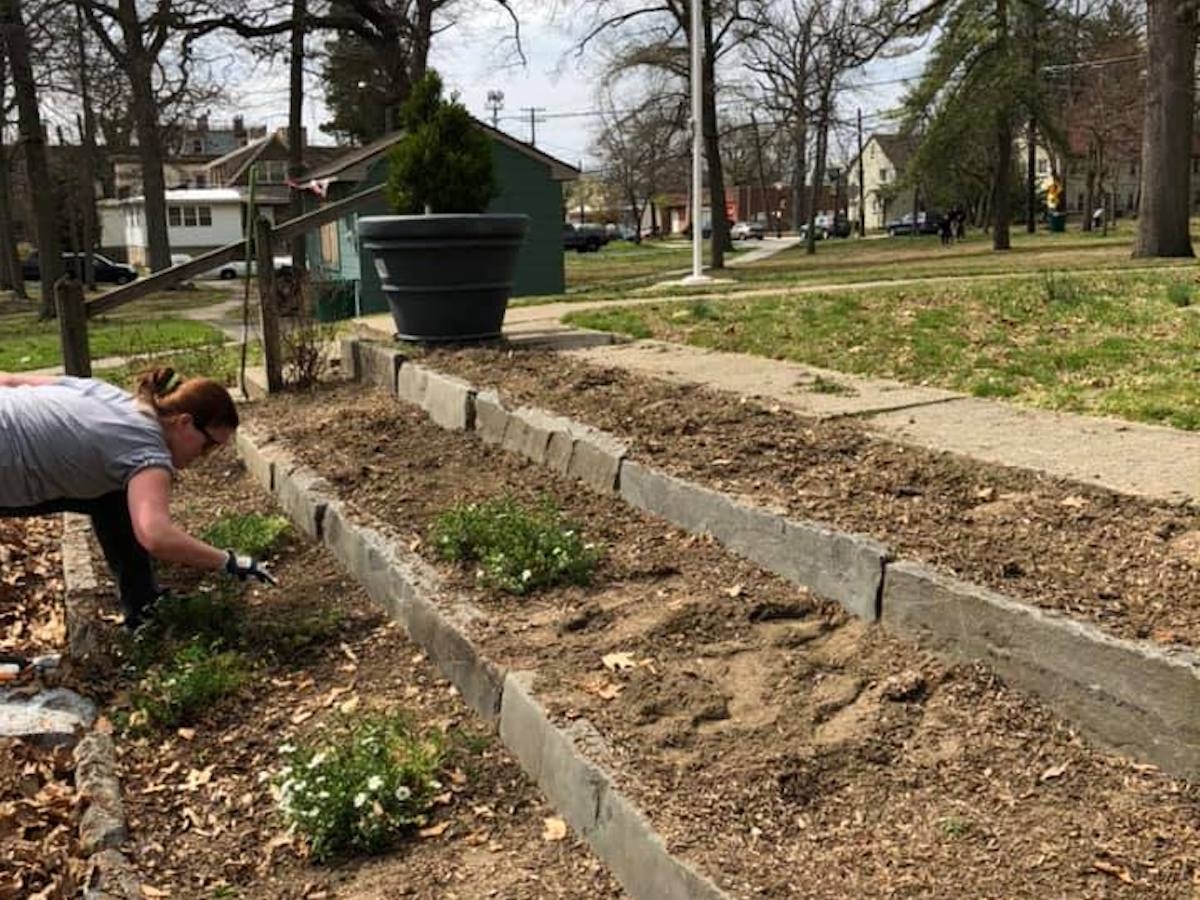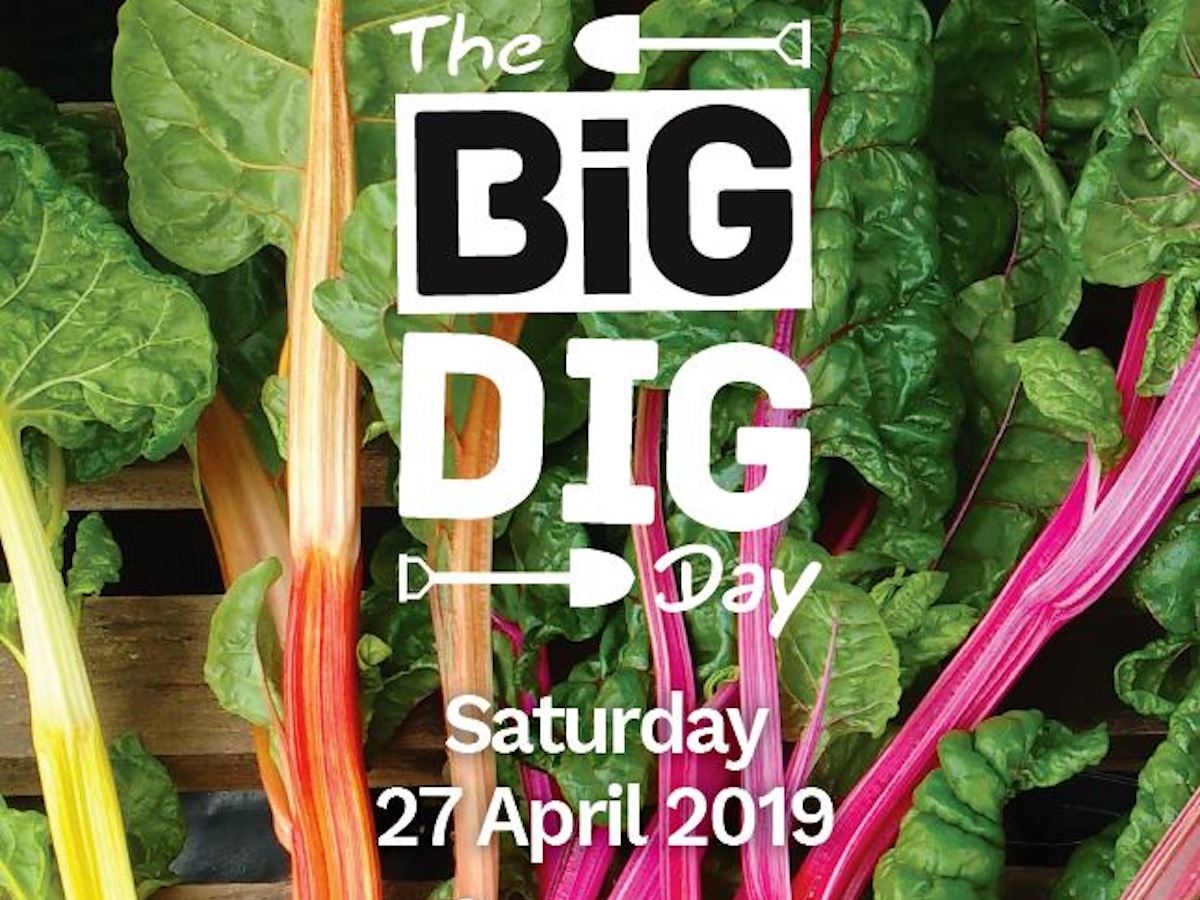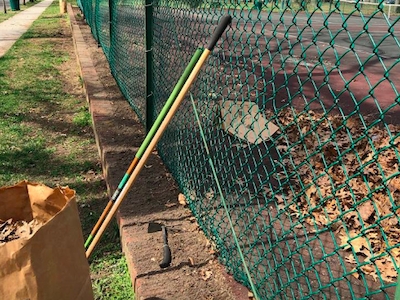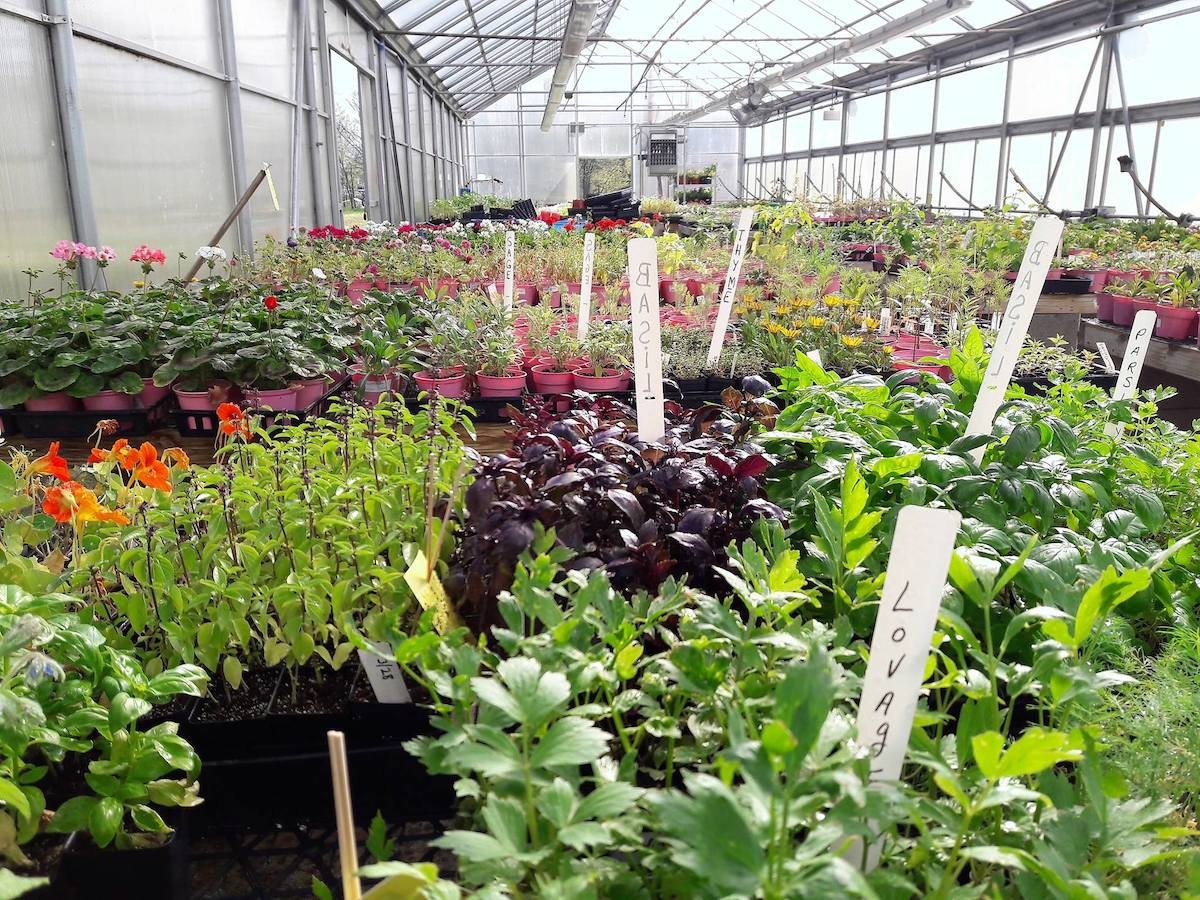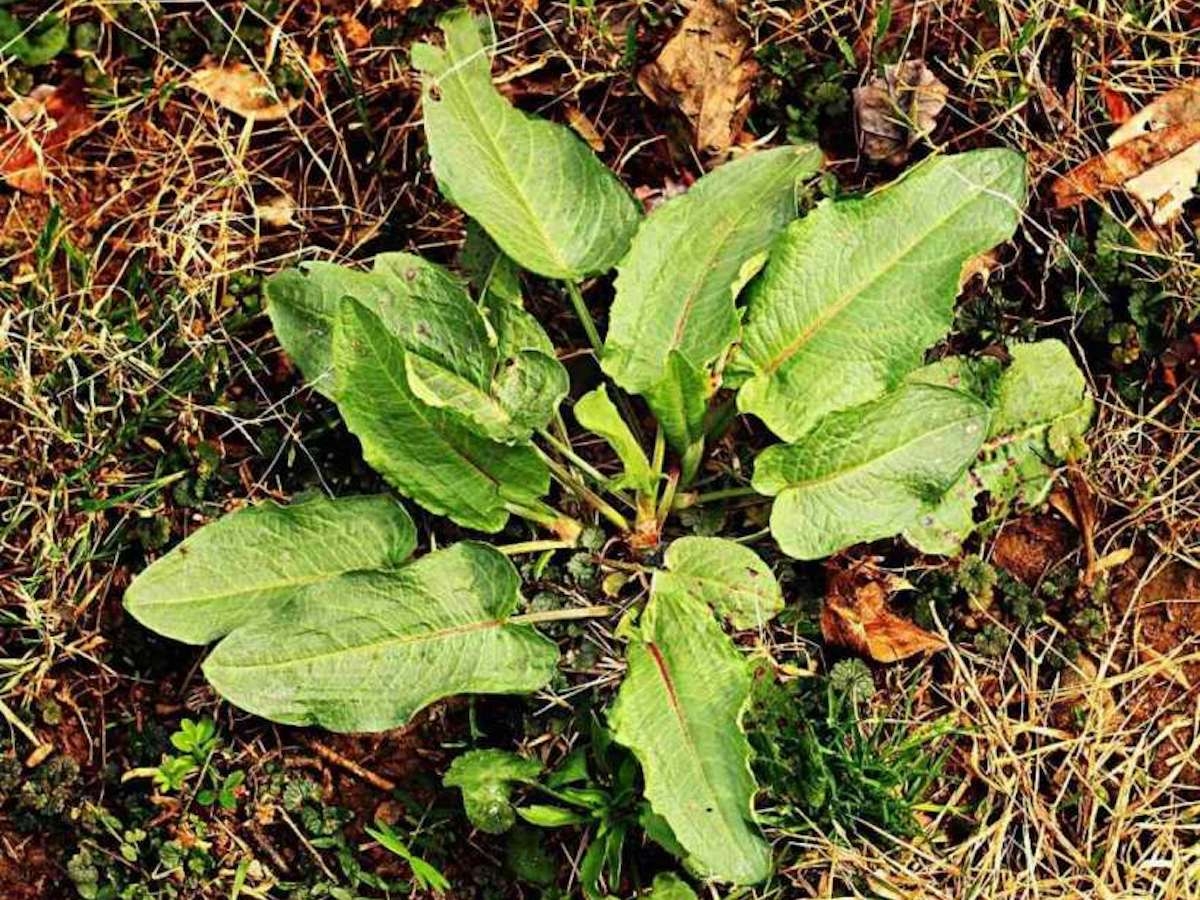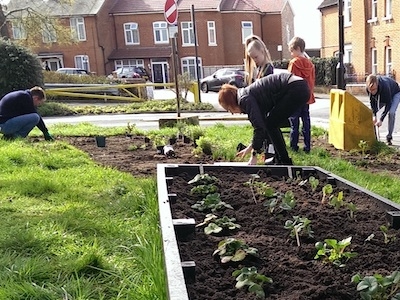Last weekend, residents Brigid Austin and Jessica Stewart started clearing winter's cover from the planting terrace at Wellwood Park in preparation for their IE small action project called "Blueberry Hill". They are active members of the West Maple neighborhood and Garden Club who help maintain and sustain all the flowers and vegetation in the 23 west end planters and bike path. If you'd like to help them water this year, just let the Brigid, Jess or the Garden Club know.
The Big dig
The Big Dig is an online platform to support food growing in the UK, run by Sustain every spring to promote edible gardens and encourage people to volunteer.. The Big Dig Network is all about getting people involved in their local community garden. During this day, gardens welcome volunteers and visitors, new and old, to explore how to grow food and celebrate the start of spring and the new growing season. IE should plan this for 2020!
This mushroom eats plastic
A newly-discovered type of mushroom could not only play a crucial role in slashing plastic pollution, but could have myriad other uses in addressing the environmental plastics crises the planet faces. Discovered in 2012 by Yale University students, Pestalotiopsis microspora is a rare species of mushroom from the Amazon rainforest that’s capable of subsisting on a diet of pure plastic, or more accurately, the main ingredient in plastic–polyurethane–before converting the human-made ingredient into purely organic matter. It can live off of our plastic waste, without oxygen–meaning that the rare breed of mushroom would make an ideal agent for landfill clean-up, literally from the bottom-up.
Prepping for beans
Soil preparation began along the tennis courts at Wellwood Memorial Park, between Linden and Hamilton Avenues, today for one of IE Merchantville's small action, edible garden projects. Core working group members, Joan Brennan and Marie Hanna, worked to clear the brick perimeter planter of leaves, weeds and debris to lay the groundwork for "Jack's Beanstalks" plantings that will grow up and along the built-in chain link trellis around the courts.
Green Garden Fair
On April 27th from 10-2, Rutgers Master Gardeners of Camden County, and the Office of Sustainability present the 2019 Green Garden Fair. Featured Speaker is Doug Tallamy, author of Bringing Nature Home: How Native Plants Sustain Wildlife in Our Gardens. The tickets are free, follow link below. Enjoy cooking demonstrations and tastings, shop annual and perennial plants grown by Master Gardeners, have fun with free kids’ garden projects and tour the Educational Garden. Join the Pedal the Park event in the adjacent county park. Learn from ecologically-minded organizations and shop with our vendors. 2019 will be the Biggest fair yet. Don’t miss it!
Edible garden weeds
Warm March wind, flowering redbuds, and the greening of the lawn: all suggestions of spring. Early spring is when some of the most prolific, most accessible wild edibles make their first appearances of the year. It's when edible plants are at their tenderest and tastiest. And your own backyard might just be the most convenient and most productive place you'll find to forage this time of year. Here are a few of the more common edible weeds that are likely lurking in your yard and garden.


